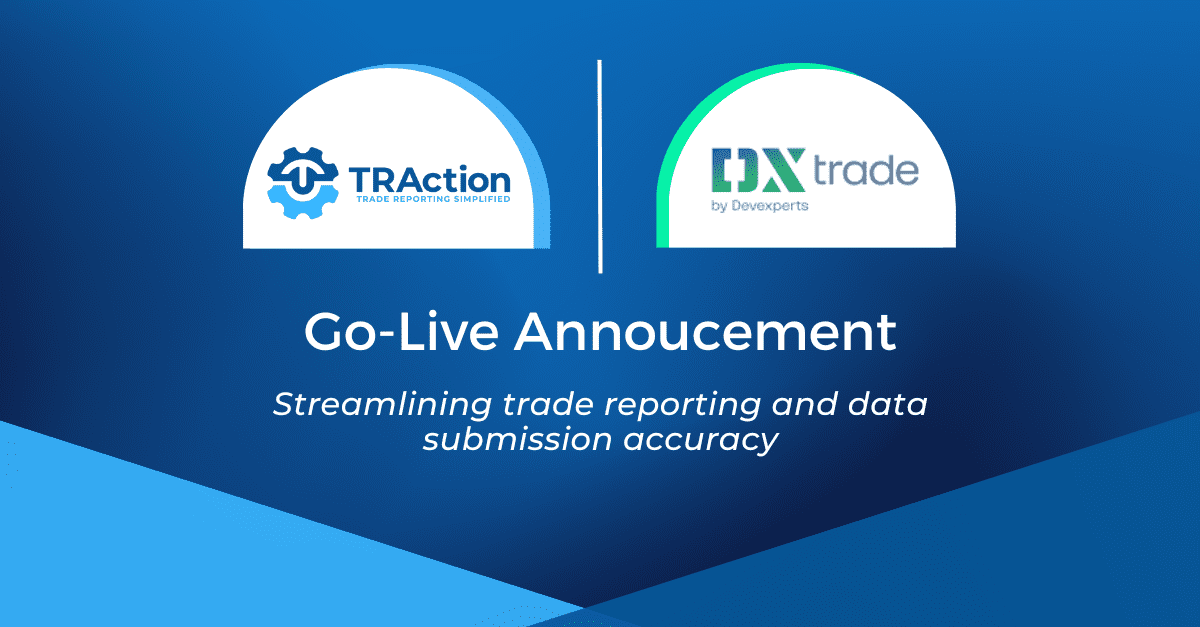ASIC Rewrite has now been finalised and will go live in two parts:
- on 21 October 2024 the majority of the changes will begin.
- on 20 October 2025, the final set of updates will commence.
The Amendment Instrument released on 21 August 2024, implements the final changes to the 2024 Reporting Rules which were proposed by ASIC in CP 375 and other consultation documents.
There will be a staggered commencement of the Amendment Instrument with Part 1 and Schedules 1, 2, 3 and 5 commencing on 21 October 2024 and Schedule 4 commencing on 20 October 2025.
The main changes in the Amendment Instrument are outlined below:
- 21 October 2024
- Exchanged Traded Derivative (ETD) definition – substitution of a generic definition of an ETD in place of the current list of specified financial markets and classes. There will be ability to adjust this ‘for any unanticipated definitional uncertainties’.
- Minor amendments to the 2024 Reporting Rules – to align with other major jurisdictions and correct errors and omissions, e.g. Updating changes to derivative transaction information included in Rule S1.3.1, Tables S1.1(1) of the 2024 Reporting Rules and providing an implementation time if there are changes to the ISO 20022 message definition.
- Exchanged Traded Derivative (ETD) definition – substitution of a generic definition of an ETD in place of the current list of specified financial markets and classes. There will be ability to adjust this ‘for any unanticipated definitional uncertainties’.
- 20 October 2025
- Remove ‘Alternative Reporting’ as a form of substituted compliance – Essentially the existing alternative reporting framework has meant trades done by Australian firms with firms that are regulated in one of the other major jurisdictions (often hedging trades), don’t have to be reported (since the liquidity provider on the other end is doing the reporting to a ‘prescribed’ trade repository and the Australian firm is covered by single-sided relief).
From 20 October 2025, ASIC-regulated firms will have to report these trades with foreign firms regardless of the reporting requirements of the liquidity provider on the other end. Removing the alternative reporting arrangements will help ASIC to get a better picture of the overall net exposures of firms. Notably, there is nothing preventing ASIC firms from starting this reporting now if they would like to get ahead of the regulatory changes. It is important to clarify that the ‘single-sided relief’ provisions remain available, however this is going to require reporting by the other counterparty to be done to one of the ASIC authorised derivative trade repositories in order to qualify for the relief.
Note, the Amendment Instrument also provides an exemption for a reportable transaction that is a modification, termination or assignment, or a change to the way an OTC is recorded by a reporting entity in its books and records which was reported to a trade repository before the removal of alternative reporting.
- ‘Nexus Derivative’ definition (wider than the current definitions) is introduced in the Amendment Instrument – which means ‘an OTC Derivative in relation to which Australian-located staff of a foreign entity are involved in one or more functions of pricing, seeking or providing quotes, structuring, offer and/or acceptance or managing its financial risks and a Reporting Entity is a counterparty.’
The test used in determining whether an OTC Derivative is a Nexus Derivative depends on the functions of the person executing the relevant OTC and is designed to capture persons commonly called ‘salespersons’ or ‘traders’, however, the person’s role is not definitive in determining if the OTC is a Nexus Derivative.
‘Foreign entities’ reportable transactions will now have the ‘nexus derivatives’ scope test instead of the ‘entered into’ scope test. There will also be a separate specification for an ‘entered into’ scope test for reportable transactions of foreign central counterparties which is intended to simplify the scope of their reporting requirements.
- Remove ‘Alternative Reporting’ as a form of substituted compliance – Essentially the existing alternative reporting framework has meant trades done by Australian firms with firms that are regulated in one of the other major jurisdictions (often hedging trades), don’t have to be reported (since the liquidity provider on the other end is doing the reporting to a ‘prescribed’ trade repository and the Australian firm is covered by single-sided relief).
Accordingly, TRAction encourages all firms who have operations in Australia or Australian clients to review the Amendment Instrument in determining if they will be in scope to ensure they are compliant.
ASIC has confirmed that it will shortly:
- make relevant changes to other current instruments to reflect and coincide with the changes described above. In particular, note that the below exemption will be amended:
- ASIC Derivative Transaction Rules (Nexus Derivatives) Class Exemption 2015 – for the 2024 Reporting Rules to continue to apply until the ‘nexus derivative’ scope test for foreign entities’ reportable transactions is uplifted on 20 October 2025 – allowing foreign reporting entities to opt-in to nexus reporting prior to 20 October 2025; and
- publish guidance materials to reflect the changes e.g. updating RG 251 Derivative transaction reporting and Schedule 1 Technical Guidance.
If you have any questions in relation to how the changes under the Amendment Instrument will impact your firm, please do not hesitate to contact us.
Background
The intent of ASIC in amending the reporting requirements is to achieve harmonisation across international standards for entity, product and transaction identifiers and ISO 20022 as the reporting technical standard – in other words, to align reportable data elements across other major jurisdictions.
Other significant regulatory reporting changes such as EMIR Refit (both EU and UK which start at separate times in 2024) and MAS Rewrite have commenced (or are set to commence) in 2024. Some firms have also had CFTC reporting changes to implement.
References
ASIC Derivative Transaction Rules (Reporting) 2024 Amendment Instrument 2024/416 (Amendment Instrument)
ASIC Derivative Transaction Rules (Reporting) 2024 (2024 Reporting Rules)




